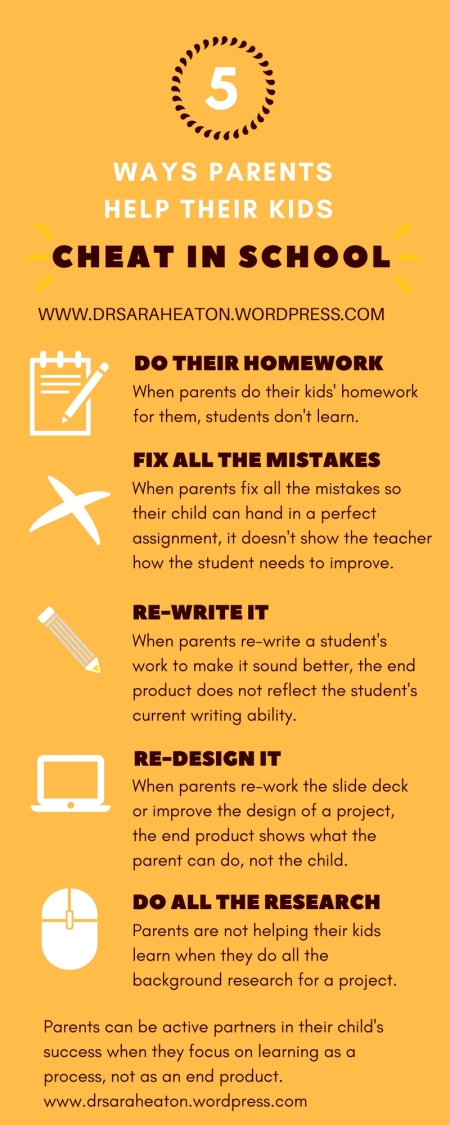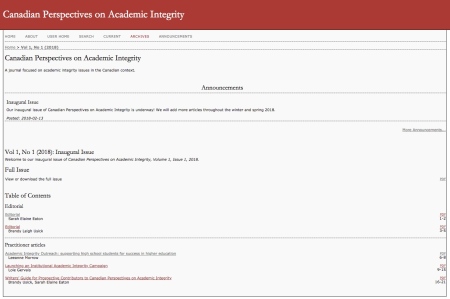I recently heard an acquaintance complain about how tired they were at work one morning. The reason? “I was up all night working on my kid’s science project.”
The parent was adamant that their child had to “do well” on the science project. To that parent, “doing well” meant getting a good grade and receiving praise (and possibly a prize) from the judges. It wasn’t about if or how much their child learned during the process.
That got me thinking about the various ways I’ve observed parents helping their kids cheat in school. Here are a few:
Doing the work for them
When parents do their kids’ homework for them, students don’t learn.
Fixing all the mistakes
When parents fix all the mistakes so their child can hand in a perfect assignment, it doesn’t show the teacher how the student needs to improve.
Re-writing it
When parents re-write a student’s work to make it sound better, the end product does not reflect the student’s current writing ability.
Re-designing it
When parents re-work the slide deck or improve the design of a project, the end product shows what the parent can do, not the child.
Doing all the research
Parents are not helping their kids learn when they do all the background research for a project.

Parents need to stop equating doing their children’s school work as an act of service that shows their children how much they love them. Doing a child’s school work does not send the message, “I love you!” Instead, it enables the child to avoid learning things for themselves.
When parents to school work on behalf of their children, it is a form of cheating. In fact, it is part of special kind of academic dishonesty called “contract cheating”. This is when a student has someone else do their work on their behalf. Contract cheating can happen when students buy their school work off the internet for money, or when they agree to have anyone else do their work for them, even if no money is exchanged. There is still an implicit contract in place: Someone else is doing the work on behalf of the student.
Parents can be active partners in their child’s success when they focus on learning as a process, not as an end product. That is why it is important for parents to help children learn skills like writing, designing and researching and to improve their skills over time. Learning isn’t about being perfect; it is a lifelong process that keeps going long after students leave school.
I am not saying this is easy. The temptation to “help” a child succeed can be strong. It is important for parents to understand that helping does not mean doing the student’s work for them.
______________________________________________________
Share or Tweet this: How parents help their kids cheat in school https://wp.me/pNAh3-2hd
This blog has had over 1.8 million views thanks to readers like you. If you enjoyed this post, please “like” it or share it on social media. Thanks!
Sarah Elaine Eaton is a faculty member in the Werklund School of Education, University of Calgary, Canada.
Opinions are my own and do not represent those of the Werklund School of Education or the University of Calgary.




 Posted by Sarah Elaine Eaton, Ph.D.
Posted by Sarah Elaine Eaton, Ph.D.  I’m excited to share a new resource that’s been almost a year in the making. I’ve been working with some amazing colleagues:
I’m excited to share a new resource that’s been almost a year in the making. I’ve been working with some amazing colleagues: 




You must be logged in to post a comment.